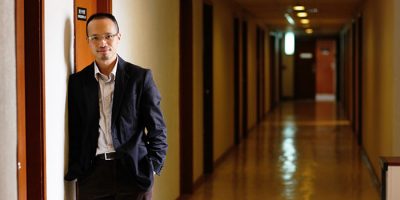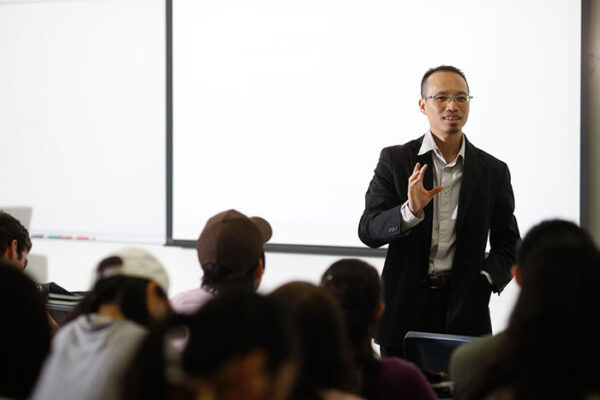Being Part of an Expanding Sector

Fulfilling a range of roles in our society, social enterprises have been growing fast in popularity in Hong Kong since the 2008 financial crisis. Unlike businesses or charities, social enterprises work with a double bottom line: they are not only sustainable businesses, but also pursue a social mission and work towards making a large social impact.
Riding on the growing interest in this business model, CUHK’s Center for Entrepreneurship launched last year a new three credit unit course titled “Selected Topics in Business – Social Entrepreneurship and Impact Investment”.
“We just had the first batch of students, and the course was completely oversubscribed,” says Professor Kevin Au, Director, Center for Entrepreneurship and Center for Family Business, and Associate Professor, Department of Management. “We thought we’d have 20 students in one class but we ended up with 32 in the first batch and we accepted 30 students for the summer class of 2017. It is very competitive to get in.”

The wide-based interest in the course is also due to the multiple ways it benefits all students, even those who may not want to set up or run a social enterprise later.
First of all, the course broadens their view on the most important social problems Hong Kong is facing and provides an understanding of how they can contribute to society. This is important, because no matter in what area they are going to work, it is likely that at some stage they will be engaged with social enterprises as professionals, entrepreneurs, investors or government employees, according to Au.
“Graduates wanting to work in investment will also find an upward trend in terms of what we call venture philanthropy, investing not just to optimize profit, but also to optimize social impact,” he says.
The multidisciplinary course trains up students’ skills relevant to consultancy, strengthening their creativity, analytical skills and design thinking. The class is split into four or five groups, and each group works with a social enterprise. Class size is small to allow teachers to support and closely monitor each group’s work.
Students put their new skills into practice by working with the select social enterprises to solve real-life business problems from scratch and, at the same time, expand the enterprise’s social impact, such as reducing discrimination, supporting the socially disadvantaged, offering job opportunities for people with disabilities, solving environmental problems or narrowing the gap between rich and poor.
They are expected to go into the community and work closely with their partners to understand the social problems, their root causes and underlying issues. They need to think from different angles: as a business person to run the business, as a social worker to sympathize and empathize with people who have social needs and as an investor to evaluate carefully how to allocate resources to get the highest return in terms of profit and social impact.
“This is kind of difficult for the students. Pretty challenging,” Au says.
In the process, students should come up with ways to improve operations and help the social enterprise generate ideas for expansion.
There is a large number of social enterprises that have been in business for several years. They are beyond the startup phase and looking at expansion. These companies need fresh ideas, new information or different knowledge and skill sets to solve some problems they cannot solve by relying on their internal resources.
The final objective is to help these social enterprises pitch their expansion plans to a panel of judges, for the best to be awarded HK$250,000 to help it grow.
As social enterprises need members with a variety of perspectives and work experiences, Au encourages students with diverse specialisations to apply to make the learning process more rewarding. “With students of different backgrounds working together, the benefit of the course will be multiple,” he says.
Philanthropy, shared value and social enterprises are expected to grow massively in the next 10 to 20 years as huge amounts of wealth will be directed to charitable activities from high net worth people such as Bill Gates, Warren Buffet, Mark Zuckerberg and others, internationally and locally.
The expanding philanthropy sector will require a growing number of well-trained executives and offer increasingly interesting work opportunities to those who are well versed in business management of social enterprises, venture philanthropy and impact investment, and experienced in satisfying the demands of the double bottom line.
Written by: Ms. Andrea Zavadszky
Watch the interview for more info about the course – “Social Entrepreneurship and Impact Investment”
Click HERE to view the course leaflet.

